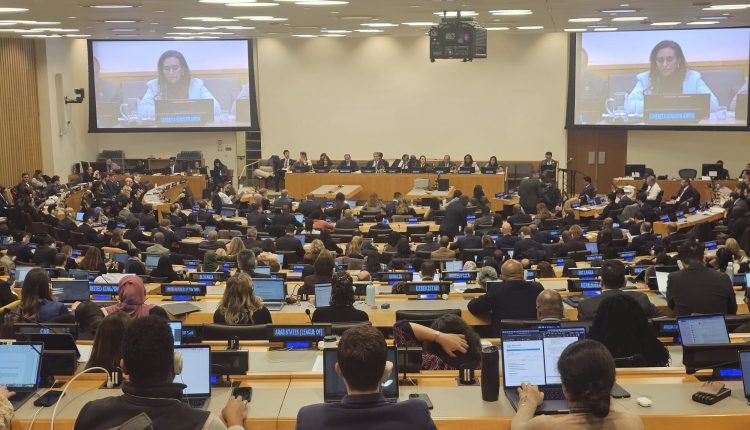Ethiopia calls for addressing financial inequities at the fourth Financing for Development (FfD4)
Addis Ababa, February 12, 2025 (FMC) – At the third session of the Preparatory Committee (PrepCom) for the Fourth International Conference on Financing for Development (FfD4) held at the UN Headquarters from February 10-14, 2025, Semereta Sewasew, State Minister of Finance, highlighted the urgent need to address the global financial divide in the upcoming FfD agreement.
With the FfD4 conference fast approaching in Seville, Spain (June 30-July 3, 2025), the State Minister called for an outcome document that is ambitious, practical, fair, and responsive to the realities faced by developing nations.
In her address at the Ministerial scene-setter aimed at building political momentum for the negotiations, the State Minister emphasized Ethiopia’s key role in hosting the first preparatory session in Addis Ababa in July 2024, as well as the FfD3 in 2015, which resulted in the Addis Ababa Action Agenda.
Regarding the Draft FfD4 outcome document, she stressed the need for bold changes in both narrative and strategy, alongside a firm commitment from all stakeholders—UN, member states, and international financial institutions—to ensure the preparation and effective implementation of the document. She underscored the urgency of these actions, given the significant setbacks in achieving the SDGs, further exacerbated by challenges in development finance, geopolitical tensions, and rising disaster risks.
State Minister Semereta also called for lessons to be taken from previous FfD agreements, particularly in addressing the unique challenges faced by Least Developed Countries (LDCs) and Africa. She advocated for innovative, equitable, and inclusive solutions tailored to the specific economic, developmental, and aspirational needs of the region.
Furthermore, the State Minister emphasized the need for the outcome document to fully address global financial architecture reforms, the International Development Cooperation framework, and Multilateral Development Banks to ensure inclusive and sustainable development finance pathways.
She also stressed the importance of a robust monitoring and follow-up framework to ensure the effective implementation of the FfD4 outcome document, along with greater transparency and accountability.
In closing, State Minister Semereta reaffirmed Ethiopia’s commitment to the preparation and successful implementation of the FfD4 outcome document.

